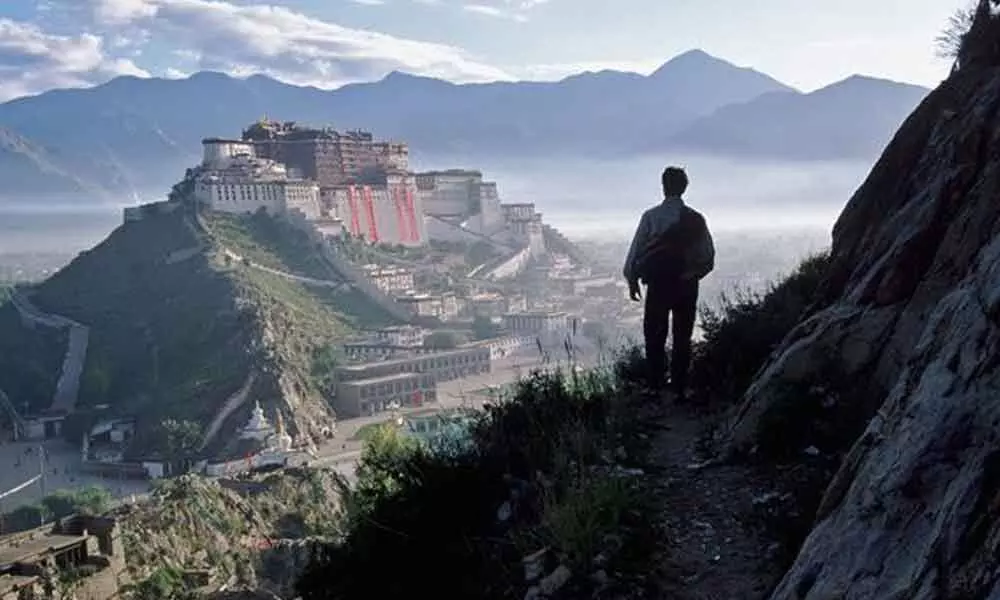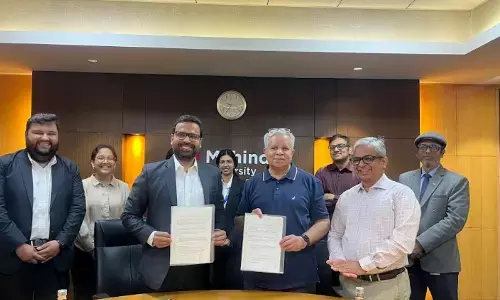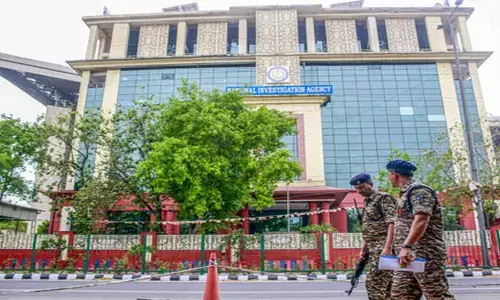Saving Tibet from CCP is vital for Asia's future

Saving Tibet from CCP is vital for Asia’s future
Xi Jinping, leader-for-life of the Chinese Communist Party (CCP), has recently directed his party members to "form an impregnable fortress in maintaining stability" by strengthening the role of the CCP in Tibet
Xi Jinping, leader-for-life of the Chinese Communist Party (CCP), has recently directed his party members to "form an impregnable fortress in maintaining stability" by strengthening the role of the CCP in Tibet. He also stated that "absolute loyalty (to CCP) was necessary to counter major battles (in Tibet) and prevent major risks". In the same vein, he also remarked that "Tibetan Buddhism had to adapt to socialism and Chinese conditions".
This missive to the party's higher leadership during the ongoing border tensions with India along the Line of Actual Control indicates that the CCP is likely to intensify its Sinicization programmes in this mountainous region. Strategic, economic, environmental and cultural implications of these actions are significant and could have a telling impact on the future of Asia itself.
Two decades ago, the 21st century was dubbed as Asia's Century, which the developing economies of the region set to drive global growth. But as it stands today, if countries across Asia do not rally to defeat the CCP's designs in Tibet, Asia may soon witness a century of loss.
At the very core of this potential crisis is the freshwater reserves of the world 'Third Pole'. For millennia, the freshwater lakes of Tibet have fed river systems to the East, South-East, South and West, which have nurtured enduring civilisations across the region. Outside China, the main rivers systems fed by these freshwater lakes include the Mekong, Brahmaputra and Sutlej.
However, for some decades, the CCP has been undertaking widespread infrastructure work across Tibet, ostensibly to enhance regional connectivity and mitigate flood risks. However, by combining opacity in water-level data and subterfuge in the reality of these projects, the CCP has strived to tap the majority of the freshwater reserves for themselves, with little regard for the needs of lower riparian countries across the region.
Many recent examples underscore this assertion. Changing river patterns in North Nepal have led to de-facto re-alignment of the Sino-Nepal border (a fait accompli for the people of Nepal).
Zhao Lijian, spokesperson for the CCP Foreign Ministry was quoted stating that the global community is falsely accusing CCP of manipulating the Mekong river. However, there is presently a drought-like situation along the Mekong river while Chinese reservoirs across Tibet are overflowing and causing wide-scale flooding in West and Central China.
While there is still hope for a late flood season in the Mekong this year, reservoir levels so far are similar to those in 2019, when the entire region was hit by a severe drought. The economies of Myanmar, Thailand, Laos, Cambodia and Vietnam could be significantly affected by such diversion of the waters of the Mekong.
Similarly, regular discoloration in the waters of the Brahmaputra has led to concern in India about undisclosed up-river construction, which could hurt both India and Bangladesh. Pertinently, the CCP continues to avoid any water sharing agreements in the region. With a looming 'food crisis' in China, Xi Jinping and his CCP are likely to accelerate their efforts to capture Tibet's freshwater reserves for their use. Urgent, coordinated and persistent international effort will be required to defeat this strategy of the CCP.
Further, ongoing socio-political efforts of the CCP in Tibet also need to be addressed. Ever since the CCP Army's illegal annexation of Tibet in 1950, the Tibetan people have been forced to change their way of life. They have been forced to abandon their villages, traditional livelihoods and freedom to practice their faith, to survive under the CCP regime. Large-scale relocation of CCP functionaries to Tibet has caused a change in the region's demography.
In recent years, there has also been rapid militarisation of the entire Tibetan region, which has strengthened the CCP's political hold and increased the vulnerability of the indigenous peoples. This is a travesty given that Tibet is the abode of Buddhism, one of the most peaceful religions in existence.
With His Holiness, the 14th Dalai Lama Tenzin Gyatso already in his 85th year and the current Panchem Lama Gedhun Choekyi Nyima captured by CCP since 1995, the Tibetan Buddhist community may indeed face a leadership void in the times to come. The CCP 'approved' Panchen Lama has been visible in China but receives limited support from the Tibetan Buddhist community. This problem is exacerbated by CCP's insistence that the next Dalai Lama must be 'approved' by the party. Simply put, Xi Jinping will decide who will be the 'living god' for Tibetan Buddhists!
Moreover, the recent call to reinforce 'Socialism and Chinese considerations' in Tibet implies that the re-education camps of Xinjiang, where millions of Uighurs have been 'indoctrinated' are likely to be replicated in Tibet. This would have drastic implications for the entire Tibetan Buddhist community, who are already facing an uncertain and vulnerable future.
It is therefore imperative that the global community recognises the threat being posed by the CCP's nefarious designs in Tibet. A unified global call to counter CCP is vital for the survival of the Tibetan Buddhist Community as well as the continued growth and security of developing economies across Asia.
The global response would require three actions by the CCP as a demonstration of good faith and intentions -- meaningful demilitarisation of Tibet to safeguard the local community, comprehensive water-sharing and management arrangements with all lower riparian nations and independent international oversight of infrastructure building activity in Tibet to prevent environmental and economic disasters in Asia.
Xi Jinping and the CCP leadership are at crossroads, where the false narrative of 'peaceful rise of China' narrative has finally been discarded. With growing global discontent against CCP, a coordinated global response to save Tibet would demonstrate that the comity of nations can indeed enforce a 'rules based global order'. In the long run, such action would also ensure that 'Asia's Century' delivers on its immense potential, bringing further prosperity across the globe.
(The writer is a columnist and researcher. The views expressed are personal)

















